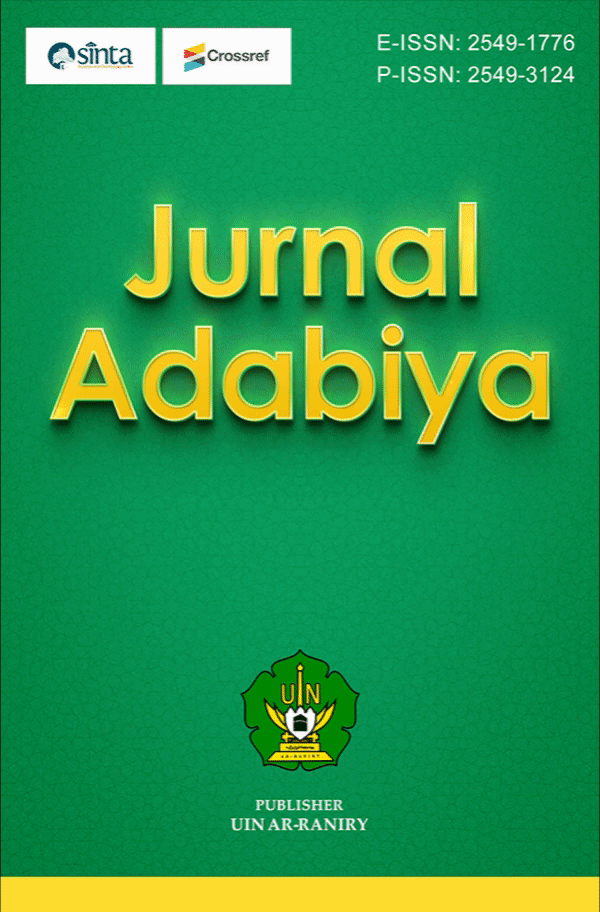References
Adekoya, C., & Inyang, E. (2022). “Academic Library Leadership in Nigeria and ICT Adoption”. International Information & Library Review, 55, 220 - 232. https://doi.org/10.1080/10572317.2022.2119352.
Adeleke, A., Ojokuku, Y., & Onaade Ojo, J. (2022). “Digital Maturity of University Libraries in Nigeria”. IntechOpen. http://Doi.org/10.5772/intechopen.103892
Afrane, D. A., Donker, A. B. & Yamson, G. C. (2022). “Libraries for Tomorrow: The Use of ICT and Space Transformation in Some Academic Libraries in Ghana”. Mousaion: South African Journal of Information Studies, 40 (2), http://doi:10.25159/2663-659X/9896
Ajemba, M. N. (2022). “Leadership style that is effective amidst a crisis such as the COVID-19 pandemic”. World Journal of Advanced Research and Reviews, 16(02), 341–346, https://doi.org/10.30574/wjarr.2022.16.2.1172
Akparobore, D. and Omosekejimi, A.F. (2020) “Leadership qualities and style: a panacea for job productivity and effective service delivery among library staff in academic libraries in South South, Nigeria”. Library Management, Vol. 41 No. 8/9, 677-687. https://doi.org/10.1108/LM-02-2020-0025
Anuradha, P. (2017). “The impact of digital technologies on academic libraries: Opportunities and challenges”. IP India Journal of Library Science and Information Technology. 2 (2), 46-50. https://www.ijlsit.org/article-details/5255
Anuradha, P. (2020) “Digital transformation of academic libraries: Opportunities and challenges”. IP Indian Journal of Library Science Information Technology, 3(1):8-10. https://doi.org/10.18231/2456-9623.2018.0002
Costa, J., Pádua, M and Moreira, A. C. (2023). “Leadership Styles and Innovation Management: What Is the Role of Human Capital?” Administrative Sciences, 13(47). 1-21, https://doi.org/10.3390/admsci13020047
DeRue, S., & Myers, C. (2013). “Leadership development: A review and agenda for future research.” The Oxford Handbook of Leadership and Organizations, 37, 832-856. https://doi.org/10.1093/oxfordhb/9780199755615.013.040
Germano, M.A. (2011) “Library Leadership that Creates and Sustains Innovation”. Library Leadership and Management, 25.1: 1-14. http://doi:10.5860/llm.v25i3.2085
Ikenwe, I. J., and Udem, O. K. (2022). “Innovative Digital Transformation for Dynamic Information Service Sustainability in University Libraries in Nigeria”. Folia Toruniensia, 22, 67–86. https://doi.org/10.12775/FT.2022.004
Jangu Alhassan, A. (2022) “Leveraging Leadership Style Amid Crisis: Submitting Inter leadership Style as a New Tool for Quality Decision-Making”. International Journal of Interdisciplinary Research Methods, 9(1), 1-15. https://doi.org/10.37745/ijirm.14
Lawrence, A. (2019). “Librarians’ Leadership Styles and Attitude to Work in Delta State”. ATBU Journal of Science, Technology and Education, 7, 106-115.
Longmeier, M. M., & Murphy, S. A. (2021). “Framing outcomes and program assessment for digital scholarship services: A logic model approach”. College and Research Libraries. 82(2), 142-157. https://doi.org/10.5860/crl.82.2.142
Łukowski, W. (2017). “The impact of leadership styles on innovation management”. Marketing of Scientific and Research Organizations 24: 105–136. https://intapi.sciendo.com/pdf/10.14611/minib.24.06.2017.12
Lund, J. (2019). “How Digital Transformation is Driving Customer Experience”. Retrieved June 2022, from: https://www.superoffice.com/blog/digital-transformation/
Mokhtar, S., Hussin, N., Tokiran, N. S. M., Wahab, H., and Ibrahim, A. (2020). “Digital Transformation in Information Management”. International Journal of Academic Research in Business and Social Sciences, 10(11), 1453-1460. http://doi:10.6007/IJARBSS/v10-i11/9071
Odumeru, J. A. and Ogbonna, I. G. (2013). “Transformational vs. transactional leadership theories: Evidence in literature”. International Review of Management and Business Research, 2(2), 355-361
Okunlaya, R.O., Syed Abdullah, N. and Alias, R.A. (2022) “Artificial intelligence (AI) library services innovative conceptual framework for the digital transformation of university education”. Library Hi Tech, 40(6), 1869-1892. https://doi.org/10.1108/LHT-07-2021-0242
Olanrewaju, O. I., and Okorie, V. N. (2019). “Exploring the qualities of a good leader using principal component analysis”. Journal of Engineering, Project, and Production Management, 9(2), 142-150. http://doi:10.2478/jeppm-2019-0016
Pembi, S., Usman, F.I., Kwajaff, B.F, and Amatefe, M. (2022) “Leadership Styles and Leadership Qualities for Organizational Success: A Review of Literature”. Nigerian Journal of Management Sciences, 23(2), 312-323.
Perera, P., Witharana, T. and Withanage, P. (2021). “A review of leadership: different leadership theories and styles relevant to education leadership”. Asian Journal of Education and Social Studies, 19(1), 18-26. http://doi:10.9734/ajess/2021/v19i130453
Reed, B. N., Klutts, A. M., & Mattingly, T. J. (2019). “A Systematic Review of Leadership Definitions, Competencies, and Assessment Methods in Pharmacy Education”. American journal of pharmaceutical education, 83(9), 7520. https://doi.org/10.5688/ajpe7520
Savic, D. (2021) “Impact of Digital Transformation on the Future of Library Work Impact of Digital Transformation on the Future of Library Work. The Journal of Digital Transformation”. Retrieved at https://www.institutefordigitaltransformation.org/impact-of-digital-transformation-on-the-future-of-library-work/ on Friday 14th July, 2023
Shala, B., Prebreza, A. and Ramosaj, B. (2021). “The contingency theory of management as a factor of acknowledging the leaders-managers of our time study case: The practice of the contingency theory in the company Avrios”. Open Access Library Journal, 8, 1-20, http://doi:10.4236/oalib.1107850
Singh, K. K. and Asif, M. (2019) “Emerging trends and technologies for digital transformation of libraries”. Indian Journal of Library Science and Information Technology, 4(2):41-43, http://doi:10.18231/j.ijlsit.2019.011
Sow, M. & Aborbie, S. (2018) “Impact of Leadership on Digital”. Business and Economic Research, 8(3), 139-148, https://doi.org/10.5296/ber.v8i3.13368
Ugwu, C., Onyancha, O., & Fombard, M. (2020). “Transformational and transactional leadership and knowledge sharing in Nigerian university libraries”. IFLA Journal, 46, 207 - 223. https://doi.org/10.1177/0340035220917987.
Weihrich, H., Cannice, V. M., & Koontz, H. (2011). “Management: A global and entrepreneurial perspective (13th edition)”. Tata McGraw-Hill Inc, 576



